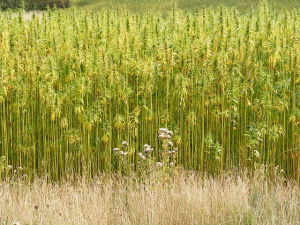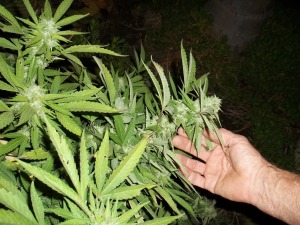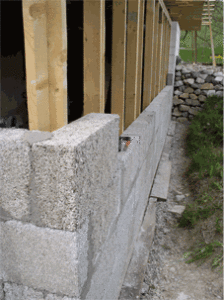Growing hemp in the United States has been banned for over 75 years, since the 1950s. With the progress of new cannabis laws, American farmers are now promised a new cash crop. Cannabis is an industry with an annual value of several hundred million dollars and has potentials and possibilities to solve many economic and environmental problems. There are many industrial uses of hemp, and according to The 420 Times, “it will displace imports of raw material and manufactured products produced by underpaid coolie and peasant labor and it will provide thousands of jobs for American workers throughout the land.”
Starting your own business gives you the financial freedom and also gives you more time to enjoy the finer things in life, like enjoying a vacation with your family, or doing more of the things you love to do in your free time. It also gives you a balance in your life, passion for what you do, and the security of having enough money saved for your future. Here are a few things you’ll need to know before starting your own business in the hemp industry.
Hemp law in the United States
 The regulation of cannabis or marijuana as a recreational or medical drug began as early as 1619. In the 1900s, many of the states labeled cannabis as poison and outright prohibited the use of marijuana. By 1930, every state in the United States had banned marijuana, including 35 states that adopted the Uniform State Narcotic Drug Act. (Wikipedia)
The regulation of cannabis or marijuana as a recreational or medical drug began as early as 1619. In the 1900s, many of the states labeled cannabis as poison and outright prohibited the use of marijuana. By 1930, every state in the United States had banned marijuana, including 35 states that adopted the Uniform State Narcotic Drug Act. (Wikipedia)
The 2014 Farm Bill agreement includes a provision that would allow institutions of higher education and state departments of agriculture to grow or cultivate industrial hemp. It requires that the sites used by universities and agriculture department be certified by—and registered with—their state department of agriculture. This provision will allow universities and agricultural departments to study industrial hemp for its possible future use as a commercial product.
Nineteen states currently have laws to provide for hemp pilot studies and/or for production as described by the Farm Bill stipulations. Eight states (California, Colorado, Maine, Montana, North Dakota, Oregon, Vermont, and West Virginia) have sponsored hemp resolutions and have laws to promote the growth and marketing of industrial hemp. (Source: State Industrial Hemp Statutes)
Why start a hemp business?
 If you are an entrepreneur, trying to start a green business, or trying to expand your existing business into the green industry, getting into the hemp business might just be the perfect thing for you. Hemp is a sustainable product that is ecologically safe, more durable, strong and also technically better, cheaper and convenient than most of the toxic alternatives available today. It also allows you to create abundance for you and your future generations.
If you are an entrepreneur, trying to start a green business, or trying to expand your existing business into the green industry, getting into the hemp business might just be the perfect thing for you. Hemp is a sustainable product that is ecologically safe, more durable, strong and also technically better, cheaper and convenient than most of the toxic alternatives available today. It also allows you to create abundance for you and your future generations.
As we have mentioned earlier that there is a wide range of products that can be manufactured using hemp. There are plastic products, hemp food products, textile and clothing products, paper and board products, biocomposites, body care, and furnishings and a lot more that can be made from hemp. You can grow your business in any of the industries mentioned above, or you could begin hemp farming, which can also be profitable.
Any part of the hemp plant can be used for industrial purposes, but the seed of the hemp is especially beneficial for the food industry because of its high nutritional value. Hemp plants can also be mixed with limestone to create hemp concrete, and used for buildings. Hemp boards and papers are sustainable alternatives to tree-based paper. Because hemp is biodegradable, grows fast and has more fiber than trees, it is eco-friendly and environmentally sustainable, which releases pressure on tree harvesting.
So, hemp gives you plenty of choices, is easy to grow and easy to start a business with. It also allows you to explore new industries and address many global issues such as alternative fuel sources, an alternative to petroleum-based plastic, and also world hunger, in countries where people live in abject poverty. Producing hemp-based food or raw materials for hemp industries would improve our economy as well as the economies of those countries that we do business with.
How to start your hemp business
If you live in a state where growing and selling hemp is legal, you could easily start hemp farming. You might need to obtain a commercial license for growing or selling hemp. Your local authorities can surely help you with that. There may be other restrictions involved regarding the THC levels of the hemp that you are growing. Growing hemp on your own property for industrial purposes could ensure a source of steady income. Hemp is sold in many stores around the United States for various purposes. After growing the raw materials, there are several industries that might be interested in the cash crop that you’re growing. A list of industries based on hemp plants is given below.
Hemp food industry
Between the years of 2005-2008, the demand for hemp food increased by 47% annually, making the hemp food industry one of the fastest-growing industries in the United States. Hemp foods include ice cream, bread and bakery products, milk, chips, granola, pasta, oil, and many more.
Hemp building industry
 Hemp building materials include Hempcrete, hemp wood, hemp boards, hemp Geo panels, hemp magnum boards, Ground air MGR, hemp-lime mortars, and industrial hemp oil. There are a lot of possibilities in this industry. Hemp buildings are stronger, more durable, waterproof, fire-resistant, insect resistant, recyclable, and are a lot more sustainable than conventional buildings.
Hemp building materials include Hempcrete, hemp wood, hemp boards, hemp Geo panels, hemp magnum boards, Ground air MGR, hemp-lime mortars, and industrial hemp oil. There are a lot of possibilities in this industry. Hemp buildings are stronger, more durable, waterproof, fire-resistant, insect resistant, recyclable, and are a lot more sustainable than conventional buildings.
Hemp clothing industry
Hemp fiber can easily replace cotton for making clothes and cushions for furniture. The cotton industry uses a lot of pesticides, which hemp plants do not need. Hemp fiber can yield up to 18 tons per hector.
Hemp paper
Fiber from hemp can produce paper more easily and save trees. Trees only produce 30% cellulose, the ingredient needed for making paper. A lot of energy and resources are wasted while converting trees into cellulose, compared to hemp fiber which produces 83% cellulose.
Hemp plastic material
 When Henry Ford first built his automobile, the body and the interiors were made from hemp plastics. Hemp is a stronger and more sustainable material than steel and conventional plastic. Plastics are now being used for everything, from our cars, grocery stores, to our houses and medical supplies. Hemp plastic can clearly be a material for the future. Bio-degradable plastic materials from hemp can easily become the solution for future plastic related issues. Hemp plastics are being used in German and Japanese automobile industries increasingly and it will also be used increasingly in the USA. The use of hemp is expected to grow in the polymer industries as well, which includes, Polyethylene, Polyurethane, Polyester, Polystyrene, and Polypropylene.
When Henry Ford first built his automobile, the body and the interiors were made from hemp plastics. Hemp is a stronger and more sustainable material than steel and conventional plastic. Plastics are now being used for everything, from our cars, grocery stores, to our houses and medical supplies. Hemp plastic can clearly be a material for the future. Bio-degradable plastic materials from hemp can easily become the solution for future plastic related issues. Hemp plastics are being used in German and Japanese automobile industries increasingly and it will also be used increasingly in the USA. The use of hemp is expected to grow in the polymer industries as well, which includes, Polyethylene, Polyurethane, Polyester, Polystyrene, and Polypropylene.
Hemp fuel
As we mentioned, Henry Ford used hemp in manufacturing his first cars, but he also used hemp as biodiesel long before he used gasoline in his cars. Hemp can be turned into both ethanol/methanol and biodiesel and can be used in any diesel engine motor vehicle without making any modifications to the engine. (hemp fuel)
Hemp supplements & medication
The hemp vitamin, proteins, and body care product industries are estimated to range between $113-129 million dollars. Hemp is known to boost the immune system, provide a complete set of amino acids, antioxidants and Omega-3 fatty acids, which our body can easily absorb. Hemp seed oil is used for reducing aches and pains, for a quick recovery after a hard workout, aiding in recovery after suffering from a sickness, and a chemical-free alternative treatment for more serious diseases such as cancer. (Hemp Oil: The Real Medicine)
 So, hemp does make a big difference. Just growing one plant can address several problems for local as well as global industries. It can be useful for addressing sustainable issues like the cutting down of trees for paper, furniture or building materials, replacing non-biodegradable plastics, polythene bags, synthetic plastics, and making clothing, and building materials. It can help to reduce the use of commercial concrete and steel with hemp concrete and hemp boards for building houses, offer an alternative, cleaner source of energy with hemp biodiesel, and address world hunger by increasing hemp food, hemp milk, oils, and hemp protein supplements. The potential of the hemp industry is a lot larger than what scientists and builders have anticipated.
So, hemp does make a big difference. Just growing one plant can address several problems for local as well as global industries. It can be useful for addressing sustainable issues like the cutting down of trees for paper, furniture or building materials, replacing non-biodegradable plastics, polythene bags, synthetic plastics, and making clothing, and building materials. It can help to reduce the use of commercial concrete and steel with hemp concrete and hemp boards for building houses, offer an alternative, cleaner source of energy with hemp biodiesel, and address world hunger by increasing hemp food, hemp milk, oils, and hemp protein supplements. The potential of the hemp industry is a lot larger than what scientists and builders have anticipated.
Watch the EAT Special Guest Webinar Replay with Anndrea Hermann, the President of Hemp Technologies Global and Chief Development Science Officer, Hemp Division of Creative Edge Nutrition, She is also the adviser for Nutiva Foods, Owner of The Ridge International Cannabis Consulting and is an Instructor at Oregon State University WSE266 Industrial Hemp.

P.S: If you enjoyed this article, we’d love your comments. Also, Please Join our EAT FREE Community, for more FREE online learning opportunities!



